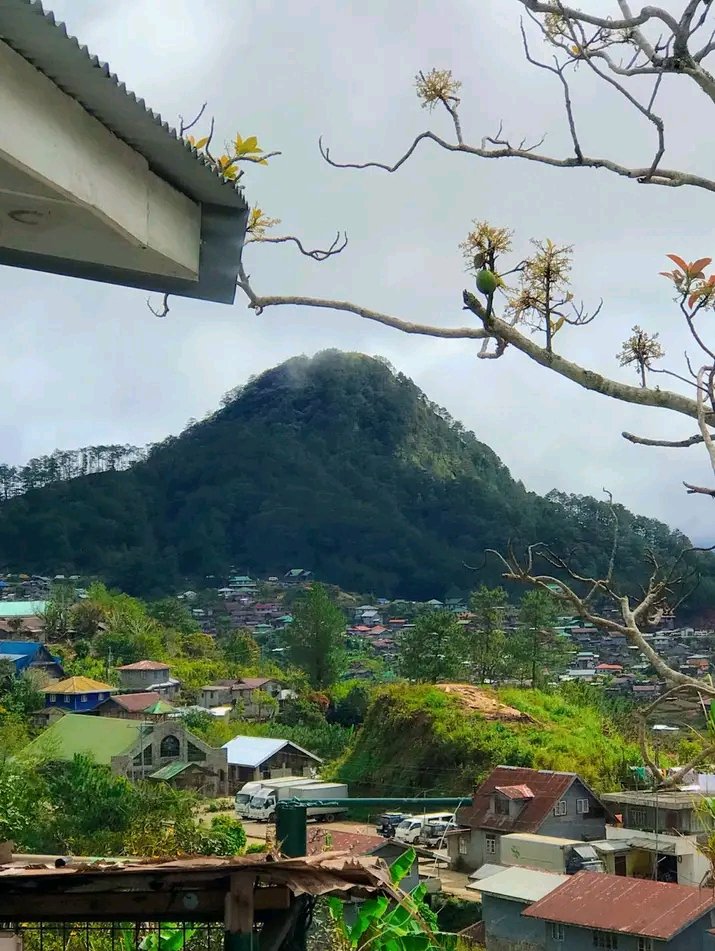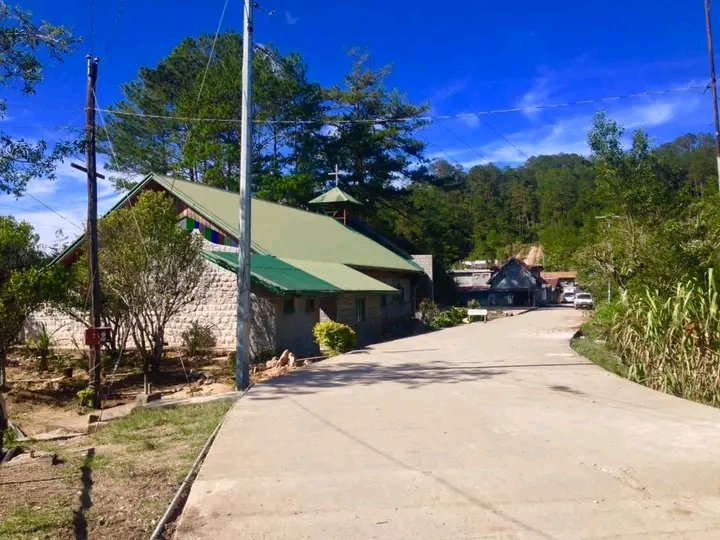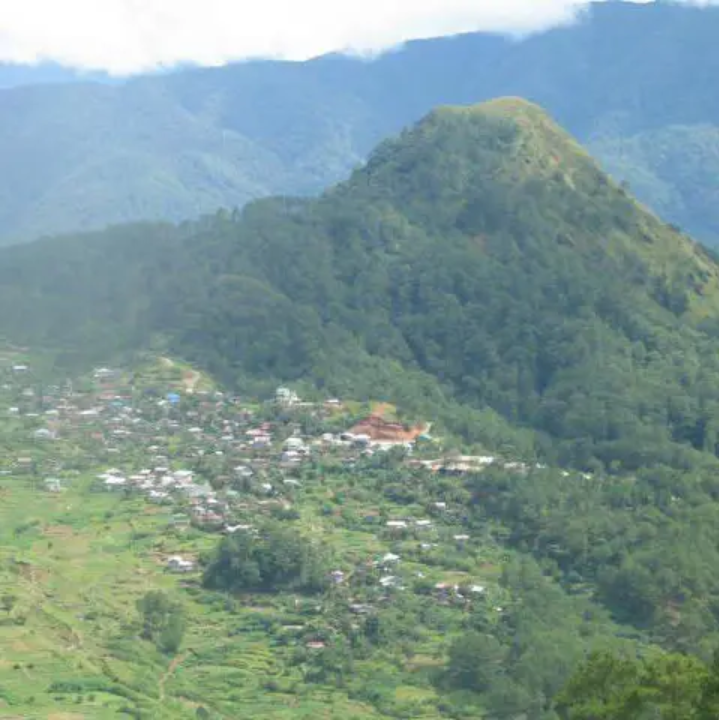
Narrator: Long ago, when the land is teeming with wild animals, Bagnen was but a hunting ground for the neighboring barangays. But fate had other plan for this land, plans that would change its destiny.
[Flashback sequence: a young man named Mongsan from ankileng, sagada, traversers the rugged terrain in search of his missing motherpig.]
Narator: Legend has it that a man named Mongsan, hailing from the nearby village of ankileng, embarked on a quest to find his beloved mother pig, little did he know, his journey would lead to the very heart of Bagnen.
Mongsan: dan into pay nan nadamusan san otik ko ay dey, ta enak kad unuden nan gatin na ay nay bareng madakngak. (Translation: where did my pig go, I will try to follow this footprints maybe I will find my pig.)
[cut to Mongsan discovering the mother pig and her newborn piglets in a grasy clearing.]
Narrator: After tireless following the pig’s train, Mongsan stumbled upon a hidden clearing where his mother pig had given birth to five adorable piglets. Inspired by the fertility of the land, Mongsan decided to make this place his home.
[ transition to Mongsan and his family tending to their crops in the newly cultivated land.]
Mongsan: ineh nay uppay ay inmanak ka sina, ta et uppay men sapo ak si kalkalapaw sina ta sed ek ay masiken nan sana anak mo. (Translation: oh you’re here, so I will build a nipa hut here and wait until the piglets winned.)
Narrator: With the determination and hard work, Mongsan began cultivating the land, planting sweet potatoes known as camote to sustain his family. As word for the fertile soil spread, other settlers from neighboring barangays were drawn to Bagnen like moths of a flame.
Mongsan: ta kad men mula ak si ange sina ta bumgas et wada kanen tako si umali ay agew. ( Translation: I will plant camote here so that we will have food this coming days.)
[ cut to scenes of families from different barangays coming together to form the community of Bagnen.]
Families from different barangays: entako, sumang at tako isdi ta isdi tako ay men te-e ya bareng umad ado nan ipogaw. ( Translation: let’s go up and live there, maybe we will build more houses and the people of other places will live there too.
Narrator: Families from Bila, Alab, Gonogon, and beyond flocked to Bagnen, each seeking a new beginning in this land of opportunity. Purok’s likes Pidlan, Managuey, Binoyoboy and Gaang emerged, each adding to the rich tapestry of Bagnen’s history.
[ a panoramic view of bagnen, with its vibrant community nestled amidst the towering mountains.]
Narrator: and so, from humble beginnings, rose the barangay of Bagnen, a testament to the indomitable spirit of its people and the timeless allure of the Mountain Province.
HOW BAGNEN GOT ITS NAME[ enter a hardworking woman, carrying a basket of vegetables on her head. She pauses near the center of barangay to catch her breath.]
Spanish official:(approaching the woman, speaking in broken Tagalog): Buenas dias senorita, donde esta el camino que va hacia sabangan? ( Translation: good morning miss, where is the way going to sabangan?
Woman: ( Taken aback, wipes her forehead) wen sabaak amin na. ( yes I will dig up.)
Spanish official: puedes mostrarme el camino para que te dinero? ( Translation: can you show me the way so that I will give you money?)
Woman: wen eskak na si mani. ( Translation: yes I will plant peanut here)
Spanish official: cual es el nombre de este lugar? ( Translation: Senora, what is the name of this place?
Woman: Nan Bangbangnin adi ay nay!( Translation: This Bangbangnin!)
[The Spanish official raises an eyebrow, not quite understanding.]
Spanish official: (smirking) Bangbangnin? Que interesante, Que significa? ( Translation: how interesting, what does it mean?
Woman: (irritated by the official’s smile, blurts out) uh…. (points to the weed growing nearby)
[ the official struggles to comprehend, squinting in confusion.]
Spanish official: (confused) Bangbangnin?Woman: (raising her voice) Bangbangnin!
[ finally, the Spanish official nods, pretending to understand.]
Spanish official: ah, Bangnin. Gracias senora.
[ the official walks away, leaving the woman fuming.]
[ cut to a few weeks later]
Narrator: The village now refers to the place as “Bangnin” instead of Bangbangnin.” The name change spreads quickly among the villagers.]
[ fast forward to to the second World war- American troops arrive in Baogen]
Narrator: The village undergoes changes, influenced by the presence of the American’s, the name “Bangnin” evolves into “ Bagnen” over time.





submitted by: Jay Ann Waeyan
submitted to: Sir Julius Jay Daskeo Jr.
section: 11 crystal